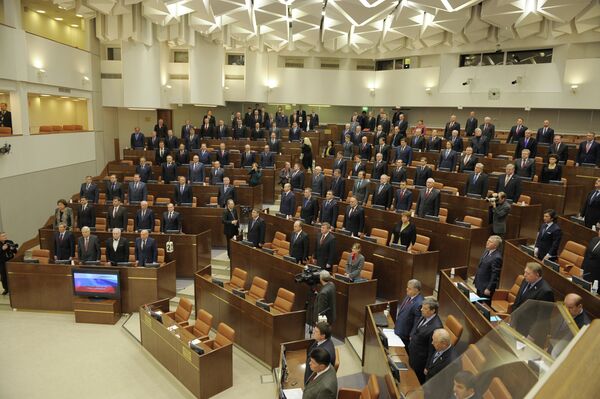MOSCOW, April 27 (RIA Novosti) – Russia’s upper house of parliament, the Federation Council, approved on Saturday a bill prohibiting Russian officials from holding bank accounts abroad or owning foreign-issued shares and bonds.
The bill bans the Russian prime minister, deputy prime ministers and ministers, and also their spouses and underage children, from having accounts and assets abroad.
The restrictions also spread to the state servants, including those working on top positions in the Central Bank, Prosecutor’s Office, regional administration, state-owned corporations, judges, employees of investigative committees, Interior Ministry, tax and customs services and municipal heads.
The bill, which was amended by Russia’s lower house of parliament, the State Duma, in its second reading last week, also extends the ban to all foreign securities, including travel checks.
Government officials are also banned from holding any valuables, including precious metals with foreign banks and cannot transfer foreign financial instruments for trust management.
The bill, which comes as part of Russia’s much touted anti-corruption drive, was submitted by Russian President Vladimir Putin to the lower house of parliament in mid-February.
As soon as the bill becomes law after being signed by President Putin, government officials will have three months to close their foreign accounts and transfer their funds to Russia or quit their government posts.
The bill, however, allows state officials to have property abroad, which they have to declare as well as explaining the sources of the income used to buy such acquisitions.
The issue of Russian state officials owning property abroad has come under the spotlight recently, with several of them resigning after it emerged that they owned undeclared real estate overseas.
Russia ranked 133rd of 174 countries in the latest Corruption Perceptions Index by the Transparency International watchdog, alongside Iran, Kazakhstan and Honduras. Corruption has been cited by the government itself as one of the principal threats to Russia's national security.




